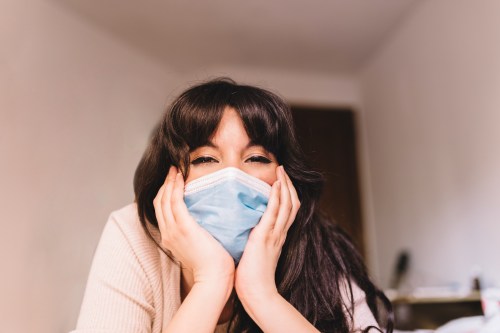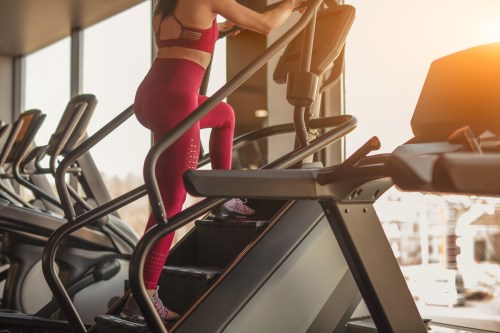After nearly a year of wearing masks, it feels like we’ve finally figured out how to handle maskne. Derms have given us the 411 on how to avoid it (a one-two punch of Vaseline and moisturizer) and treat it (grab something with benzoyl peroxide), and brands have even stepped up to launch mask-friendly skin care of their own. But if you feel like you’re doing everything right and the angry situation on your jawline still won’t go away, we’ve got news: It may not actually be maskne at all.
Experts in This Article
board-certified dermatologist and founder of Dr. Dennis Gross Skincare
According to Dennis Gross, MD, a board-certified dermatologist and the founder of Dr. Dennis Gross Skincare, something called “maskitis” might be, well, masquerading as maskne. While the two conditions may look the same and have the same root cause (a reaction to your facial covering) they come about for different reasons and need to be treated accordingly. “While masks are necessary, they put skin in a very unnatural environment by trapping bacteria and humidity, which causes congestion and irritation,” says Dr. Gross, explaining that certain skin types respond to the situation in different ways. “If you are more oily or prone to acne, you will likely experience maskne, while if you are dry and susceptible to dermatitis, you will likely develop maskitis.”
Unlike maskne, which will leave you with pimples under your facial covering, maskitis shows up as a red, dry, inflamed rash. “Maskitis will appear more red, inflamed and blotchy—you’ll see small bumps that are not acneic,” says Dr. Gross. “Maskitis can also appear on skin that is not under the mask, because the heat of the breath being trapped against the face sometimes escapes the top of the mask, causing irritation on the tops of cheeks and forehead.”
This Parisian Skincare Brand Is Launching in the United States for the First Time—Here’s What a Derm Wants You to Know

We’re Calling It: Cleansing Balms Are the Face Wash of the Future—Here Are 3 to Add to Your Cart

This Is the One Product That Scarlett Johansson Always Keeps in Her Purse and on Her Bedside Table

Because maskitis is an inflammatory condition, you’ll want to treat it with ingredients that will help calm your complexion. “You need a product that is soothing and decreases inflammation and rebalances skin,” says Dr. Gross. He recommends anti-inflammatory hero niacinamide (which can also be used to fight maskne), plus adaptogens, and superfoods. One product that’s packed with all three? The Dr. Dennis Gross Skincare B3 Adaptive Superfoods Stress Rescue Super Serum ($74), which is formulated with micro-encapsulated versions of these ingredients which help to boost absorption and strengthen your skin barrier. Though masks might be a part of the foreseeable future, it doesn’t mean your skin has to suffer for the sake of the cause.
If you’ve still got questions about maskne—and the best way to deal with it—check out the video below.
Want even more beauty intel from our editors? Join Well+Good’s Fine Print Facebook group (and follow us on Instagram) for must-know tips and tricks.
Sign Up for Our Daily Newsletter
Get all the latest in wellness, trends, food, fitness, beauty, and more delivered right to your inbox.
Got it, you've been added to our email list.








